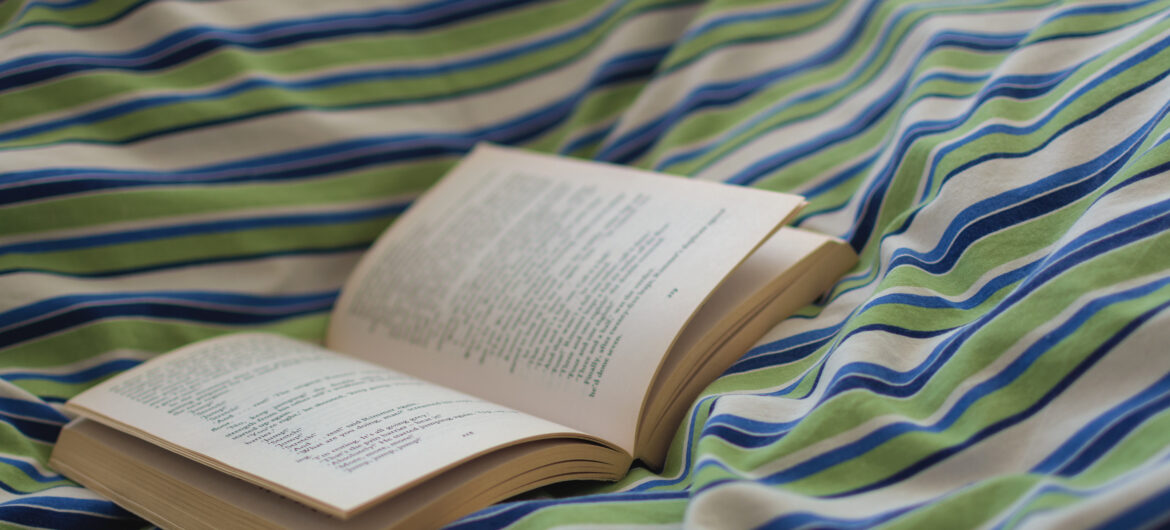Words by Jerry Silvester
Not every piece of art relating to an unpleasant event consumes us in a way we want to resist. In fact, sometimes just as we’re ready to close the door on a certain chapter of inner turmoil we’ve endured, we realise that this piece of art, essay, or film, may be the culmination that is gently nudging us towards the exit sign, armed with a little more digestible clarity than we would’ve had beforehand. Perhaps this concept is not too dissimilar to Zadie’s description in the foreword of her latest essay collection, in which she details that for the first time in her life, she picked up a book, “not as an academic exercise, nor in pursuit of pleasure, but with the same attitude I bring to the instructions for a flat pack-table- I was in need of practical assistance”.
Zadie smith’s latest book Intimations, a collection of six short essays, is both petite and understated aesthetically, whilst unabating in sincerity and commitment to observation and dialogue throughout. The collection is a volume of intimate deliberations that descend deep into hidden pockets of people’s lives. In each essay, Zadie picks apart her own thought processes about human beings, and of humans, being. Every chapter is a crucial and coalescent puzzle piece with reference to suffering, but also of indifference, of class, of race, and of privilege.
Zadie’s ability to annotate the behaviour of those who live in her neighbourhood, strikes both humorous and relatable cords, especially when referencing social distancing rules, which now stand to represent this very particular moment in time, forever. When introduced to Barbara, readers quickly learn that she is endearingly oblivious to both her dog’s bad behaviour, “The funny thing about Barbara is she has a little dog whom she insists is a well-behaved dog but who, in reality, either barks or tries to bite pretty much everyone who comes near – except Barbara”, and her own unusual and somewhat socially awkward attempts at interacting with Zadie, “Sometimes, if I’d published a piece in a magazine that day, or a book of mine had just come out, she’d start shouting at me from six feet away, repeating some small, unlikely detail of whatever it was that had struck her, but without any further commentary, complimentary or otherwise”. This essay ends with, seemingly, the first meaningful exchange between Zadie and Barbara, motivated by the current social crisis. Barbara said, “Nothing to be afraid of – we’ll get through this, all of us, together.” This appears to leave Zadie uncharacteristically lost for words: “’Yes we will’, I whispered, hardly audible”.
In the essay, “Suffering like Mel Gibson”, Zadie is clear and concise in her analysis of the economic disparities made painfully apparent by the actuality of COVID-19. “More poor people are dying than rich. The virus map of New York boroughs turns redder along precisely the same lines as it would if the relative shade of crimson counted not infection and death but income brackets and middle-school ratings”. This point is furthered to emphasise the shift in mindset of the general public as a result of such widespread violent subjugation of the working class and minorities, when Zadie goes on to state, “What was once necessary appears inessential; what was taken for granted, unappreciated and abused now reveals itself to be central to our existence. People find themselves applauding a national health service that their own government criminally underfunded and neglected these past ten years”.
Sympathising with experiences of suffering of which she admittedly cannot rationally contextualise herself, Zadie is unapologetic in establishing a definition of suffering in a way that she sees fit. “Suffering is not relative; it is absolute. Suffering has an absolute relation to the suffering individual – it cannot be easily mediated by a third term like privilege. If it could, the CEO’S daughter would never starve herself, nor the movie idol ever put a bullet in his own brain”.
Polarisation between the rich and the poor has little meaning to Zadie when seeking to speak of social order and ideologies, it’s instead proposed as merely a social construct that has potential for reformation, “Class is a bubble, formed by privilege, shaping and manipulating your conception of reality. But it can at least be brought to mind; acknowledged, comprehended even atoned for through transformative action”
Although there isn’t an explicit reference to Black Lives Matter, Zadie likens systemic racism to a virus, of which she conceives to be contempt in its truest form. Referencing George Floyd’s murder as, “the virus in its most deadly manifestation”, this emotive essay appears intentionally left till last, so as to leave its mark, and thus encouraging the conversation to continue, questioning the current racially motivated exclusion and inciting of violence, embedded parasitically in society. Considering the likeliness of a world that would be willing to challenge any current unjust segregation, Zadie writes, “There would no longer be those who are taught Latin and those who are barely taught to read. There would no longer be too many people who count their wealth in the multi-millions and too many who live hand to mouth… But the question has become: Has America metabolised contempt? Has it lived with the virus so long that it no longer fears it?”
Much like Zadie’s decision to donate all royalties from this book to charity, her astute and often deeply personal observations are given freely and unstintingly in this essay collection. An exceptional exploration of life as we know it at present that is, perhaps, just what we need right now.





